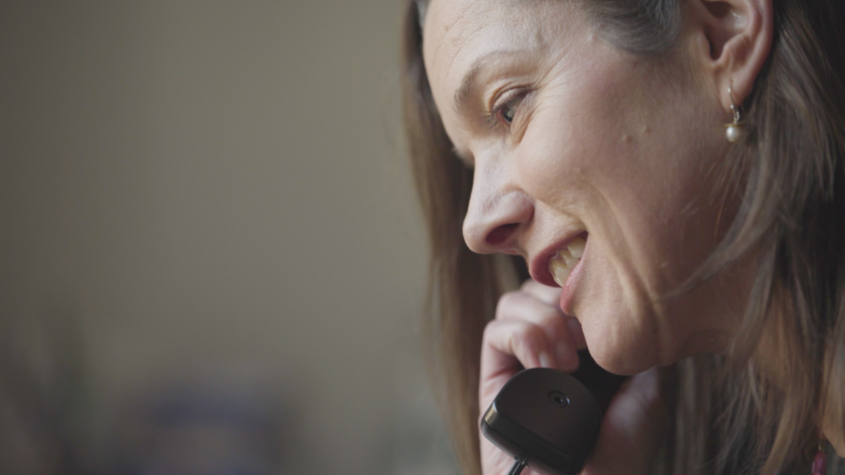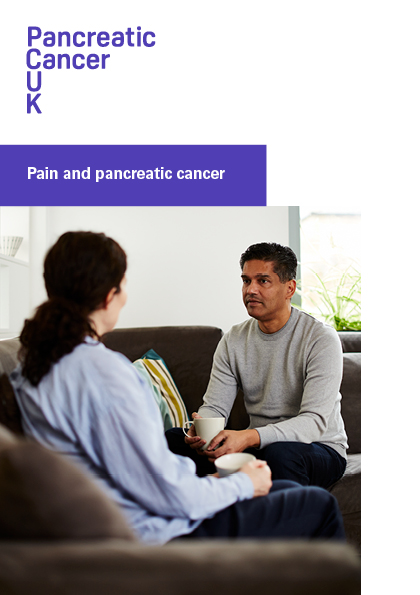Key facts
- Pain is your body’s way of telling you that something isn’t right.
- There are ways to manage pain.
- It’s important to tell your doctor or nurse about any pain early on, so it can be more effectively treated.
- Managing pain may involve your GP, district nurse, hospital doctor or palliative care team.
- Practical and emotional support can also help – your pain may seem worse at times when you don’t feel supported.
- Different people feel pain in different ways. This means that how you feel and cope with pain will be very personal to you.
- The cancer can cause pain. Problems with digestion can also cause pain or discomfort.
- Some treatments for cancer can cause pain. For example, if you have surgery, you may have some pain or discomfort while your body heals. This should improve.
- There are different types of pain that people with pancreatic cancer may have. These include nerve pain and soft tissue pain.
- Some people have more than one type of pain, or different types at different times.
- There are different types of painkillers used to treat pancreatic cancer pain. These include paracetamol, non-steroidal anti-inflammatory drugs (NSAIDs) like ibuprofen, and opioid painkillers like morphine.
- There are also other medicines that are usually used to treat other health conditions, but can also be used to relieve pain.
- You are likely to take more than one type of painkiller to help your pain.
- Painkillers can cause side effects. Ask your doctor or nurse about any side effects, and tell them if you have any side effects.
- As well as painkillers, there are other types of pain relief for pancreatic cancer. These can be used with your painkillers, or if your painkillers aren’t working well.
- A nerve block is a treatment that blocks nerves from sending messages to the brain, and so treats pain.
- Chemotherapy can help to slow down the growth of the cancer and help with symptoms like pain. Palliative radiotherapy can help with some types of pain.
- Your emotions, relationships and spiritual beliefs can all affect how you feel and react to pain. You are not alone and there is support available.
- There are things you can do yourself. For example, distracting yourself from pain with something you enjoy, talking to family and friends, or regular physical activity may help.
- Some people find that complementary therapies help them feel more in control of their pain. Always speak to your doctor before trying complementary therapies.




